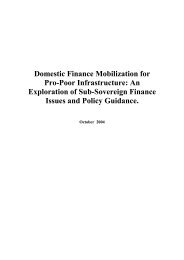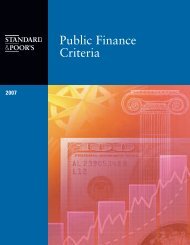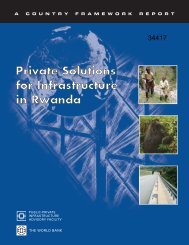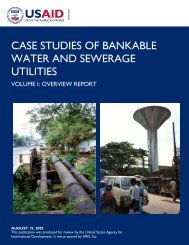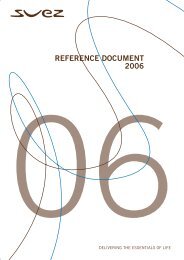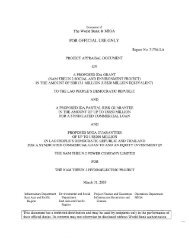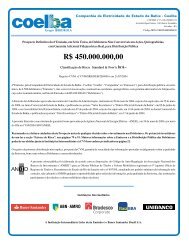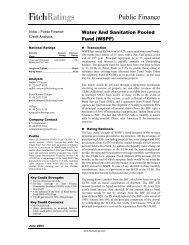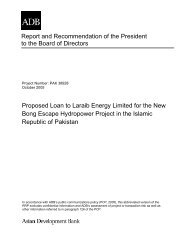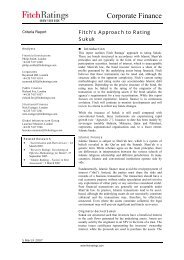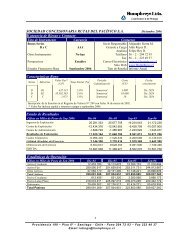EAP - The Pacific Infrastructure Challenge - World Bank (2006).pdf
EAP - The Pacific Infrastructure Challenge - World Bank (2006).pdf
EAP - The Pacific Infrastructure Challenge - World Bank (2006).pdf
You also want an ePaper? Increase the reach of your titles
YUMPU automatically turns print PDFs into web optimized ePapers that Google loves.
Universal Access<br />
Universal access refers to the goal of putting working, affordable, telephone or<br />
mobile services and internet access within the reach of the whole population.<br />
Universal access is an important goal for <strong>Pacific</strong> countries seeking to overcome the<br />
constraints of remoteness and distance between islands. <strong>The</strong> <strong>Pacific</strong> Islands Forum<br />
Secretariat Communication Policy Meeting in April 2002 identified universal access<br />
priorities in: tele-health, distance learning and community telecentres and policy and<br />
regulatory frameworks.<br />
In the telecommunications sector, the concept of universal service refers to the<br />
policy of making telephone service available to all homes, regardless of the distance<br />
from the switch or ability to pay. In most countries, universal service targets and<br />
policies have been adopted, based on the idea that telecommunications is an essential<br />
service that contributes to development.<br />
A ‘telephone in every home’ may be a realistic target for developed countries, but this<br />
is not the case in developing countries. Because of this, the term ‘universal access’<br />
was established to refer to a more realistic goal of putting a working, affordable<br />
telephone within reach of the whole population of a country. In addition, the term<br />
has been expanded to include mobile communications and increasingly, internet<br />
access under the banner of Information and Communications Technologies (ICTs).<br />
This reflects the increasing importance of information technology in developing<br />
commercial, social services, healthcare and education sectors. <strong>The</strong> concept of<br />
universal access has become an increasingly important objective for<br />
telecommunications policy and legislation in developing countries. In the <strong>Pacific</strong><br />
universal service policies refer to universal provision of voice telephony, public pay<br />
phones and internet access, corresponding with our definition of universal access,<br />
which we discuss in this section.<br />
In most countries around the world, monopoly operators have been traditionally<br />
charged with the obligation to provide a certain number of new connections per year.<br />
This approach to expanding service generally relies on cross-subsidizing local charges<br />
and connection fees from international charges. It is called the ‘Universal Service<br />
Obligation’. Incumbent telecommunications operators in the <strong>Pacific</strong> also have<br />
universal service obligations.<br />
80



